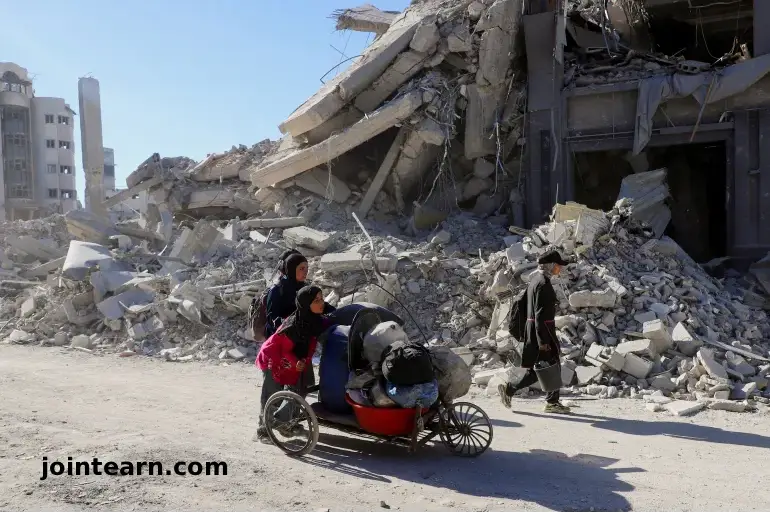
Israel has postponed the reopening of the Rafah crossing with Egypt, a key entry point for Palestinians in Gaza, citing ongoing preparations. The delay comes amid mounting humanitarian concerns, as residents face severe shortages of food, water, medical supplies, and shelter. Meanwhile, Israeli airstrikes have reportedly killed at least three Palestinians in southern Gaza despite the ongoing truce.
Rafah Crossing Delay and Israeli Restrictions
COGAT, the Israeli military unit responsible for civilian affairs in the occupied territories, announced that coordination with Egypt is ongoing to determine a reopening date for Rafah. Foreign Minister Gideon Saar indicated the crossing might open on Sunday but provided no further details.
Despite the truce agreement, Israel stated that the Rafah crossing will remain closed to humanitarian aid. Instead, all aid deliveries will be routed through the Karem Abu Salem (Kerem Shalom) crossing, following Israeli security inspections.
The reopening was originally scheduled for Wednesday under the terms of the Israel-Hamas ceasefire, highlighting delays that exacerbate the humanitarian crisis in Gaza.
Gaza’s Humanitarian Crisis
For Palestinians, the Rafah crossing has long been a critical connection to the outside world, offering a route not directly controlled by Israel. However, Israeli forces seized the crossing in May, razing buildings and asserting direct control for the first time in 20 years. Today, Israeli troops remain stationed across the Philadelphi Corridor, controlling approximately 53% of Gaza, including most of the Rafah area.
The United Nations has stressed the urgent need for large-scale humanitarian aid. UN Undersecretary-General for Humanitarian Affairs Tom Fletcher noted that thousands of aid vehicles would need to enter Gaza weekly to meet the population’s basic needs. UNICEF spokesperson Tess Ingram warned that northern Gaza faces severe shortages of food and water, with tens of thousands of children suffering from malnutrition.
Gaza’s Government Media Office described the aid delivered since the cessation of hostilities as a “drop in the ocean,” highlighting the need for consistent, organized inflows of food, medical supplies, fuel, and cooking gas. The territory is burdened with approximately 70 million tonnes of rubble from two years of bombardment, severely hampering recovery efforts.
Israeli Violations and Ongoing Attacks
Despite the ceasefire, Israeli forces have reportedly continued attacks in Gaza. According to Gaza Health Ministry reports, 29 bodies arrived at hospitals in the last 24 hours, including 22 recovered from rubble and seven from recent airstrikes. Israeli airstrikes in eastern Khan Younis killed at least three people on Thursday.
Gaza authorities reported that many bodies exhibit signs of torture, including hanging marks, bound hands and feet, and gunshot wounds at close range. The Government Media Office has called for an independent international commission of inquiry to investigate what it describes as “war crimes and field executions.”
Hamas officials also accused Israel of violating the ceasefire, claiming at least 24 violations since Friday. They argue that additional handover of bodies is obstructed by Israel’s refusal to allow heavy machinery into Gaza, essential for recovery amid extensive destruction.
Calls for International Action
With famine conditions looming and medical care scarce, UN officials and Gaza authorities urge the international community to ensure multiple border crossings are opened to facilitate rapid delivery of humanitarian aid. The delayed reopening of Rafah, combined with ongoing violence, has intensified the crisis for Gaza’s 2.2 million residents.
“The stakes are really high,” said Tess Ingram of UNICEF. “We need not just food, but treatments for malnutrition, medical care, and support to help rebuild what has been destroyed.”


Leave a Reply